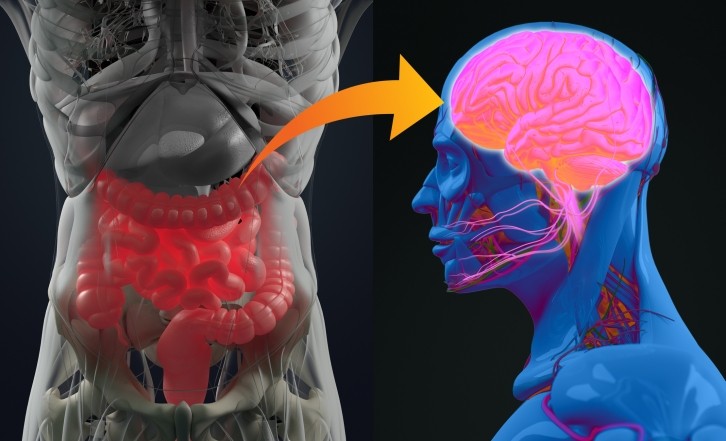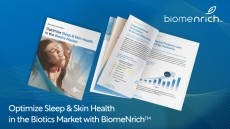Review highlights nutrition to support gut–brain–muscle axis

Published in the journal Nutrients, the paper presents recent advancements in selected nutrition strategies, brain modulation and muscle recovery, with a focus on promoting brain health in competitive athletes and individuals with different activity levels.
Researchers from the University of Gdansk, Poland, conducted a comprehensive bibliographic search in the PubMed database and noted emerging evidence around the importance of the gut-brain-muscle axis.
“By exploring the interplay between nutrition strategies, brain modulation techniques and muscle recovery, valuable insights may be gained to promote overall brain health and cognitive function, thus enhancing sports performance,” the report stated.
“Nutritional strategies, which include a variety of vitamins, antioxidants and essential nutrients, not only improve sleep quality but also play a crucial role in fostering beneficial changes in the gut microbiome. Additionally, they modulate the protective and regenerative processes of the [central nervous system] and skeletal muscles.”
The researchers presented the acronym SPARKS—Sleep, probiotics, antioxidants, regeneration, keep optimal training, and supplements and balanced diet—as a means to remember the key factors contributing to the function and regeneration processes of the gut–brain–muscle axis.
The acronym SMOULDER—sleep dysregulation, mood disorders, overtraining, unbalanced diet, large inflammation, dysbiosis, excessive oxidative stress, and regeneration damaged—they said could be used to remember the lifestyle attributes which can have a detrimental effect on the function of this axis.
Supplements for sleep
The researchers noted that melatonin (N-acetyl-5-methoxytryptamine) is regulated by the circadian cycle and influences sleep timing, nocturnal blood pressure and body temperature in addition to protecting against oxidative stress, regulating energy metabolism and affecting the immune system. They added that tryptophan (Trp) is crucial in brain melatonin synthesis as the primary precursor.
“Trp must pass through the brain–blood barrier (BBB), which competes with other neutral amino acids, thus creating higher plasma tryptophan concentrations favorable to transportation into the brain,” they explained.
The review outlined a number of studies indicating that consuming Trp-rich food (such as milk, cheese, poultry, fish, eggs, pumpkin seeds, nuts and beans) in the evening may improve sleep quality and augment sustained alertness early in the morning.
A growing body of evidence has confirmed the presence of vitamin D receptors (VDRs) in nearly all human tissues. Via binding to nuclear VDRs, active vitamin D can regulate key metabolic processes influencing human health through autocrine and endocrine mechanisms (cell and hormonal signaling).
The physiological role of vitamin D and its mechanism of action are multidirectional and complex, concerning the regulation of the nervous-, endocrine-, muscular-, immune- and cardiovascular systems, bone mineralization, regulation of gene expression, and hormone production.
A study conducted by Bertisch et al. reported that a decreased serum 25(OH)D3 level was associated with a shorter sleep time. Similarly, Hansen et al. found a positive correlation between 25(OH)D3 and sleep efficiency.
Microbiome modulation
Discussing probiotic potential, the review noted multiple studies have supported the hypothesis of the gut–brain axis and the bidirectional cross-talk between these two organs.
A number of studies have linked gut microbiome health with sleep quality and mood, with the mechanism likely related to microbiotas’ ability to synthesize neuromolecules, including GABA, melatonin and acetylcholine as well as through modulation of inflammatory state and, therefore, reduced activity of the HPA axis.
“Thus, the [central nervous system] may influence intestine function; conversely, signals from the gut lumen may affect the mood, mental health and brain function,” the researchers wrote. “The gut microbiome plays a crucial role in this gut–brain cross-talk due to its ability to synthesize certain neurotransmitters.
“It has been proved that some Lactobacillus strains may produce γ-aminobutyric acid (GABA), similarly Bacillus mycoides and Bacillus subtilis genus—dopamine; Bacillus cereus, Bacillus mycoides and Bacillus subtilis genus—noradrenaline; as well as Lactococcus lactis, Lactobacillus plantarum and Enterococcus thermophilous genus—serotonin production…
“It seems that a proper Firmicutes/Bacteroidetes ratio and bacterial biodiversity were described as the main components enhancing sleep quality.”
Polyphenols
The review outlined the importance of polyphenol supplementation, specifically noting the following plants: beetroot for its betaine, choline, polyphenols, flavonoids, anthocyanins, phenolic acids and high number of nitrates; curcumin for its antioxidant and anti-inflammatory properties; and tart cherry for its anthocyanidins (cyanidin, peonidin), flavonols (isorhamnetin, kaempferol, quercetin), catechins and epicatechins, as well as its rich melatonin content.
Source: Nutrients
doi: 10.3390/nu16121842
"Current Aspects of Selected Factors to Modulate Brain Health and Sports Performance in Athletes"
Authors: Przewłócka, K. et al.












